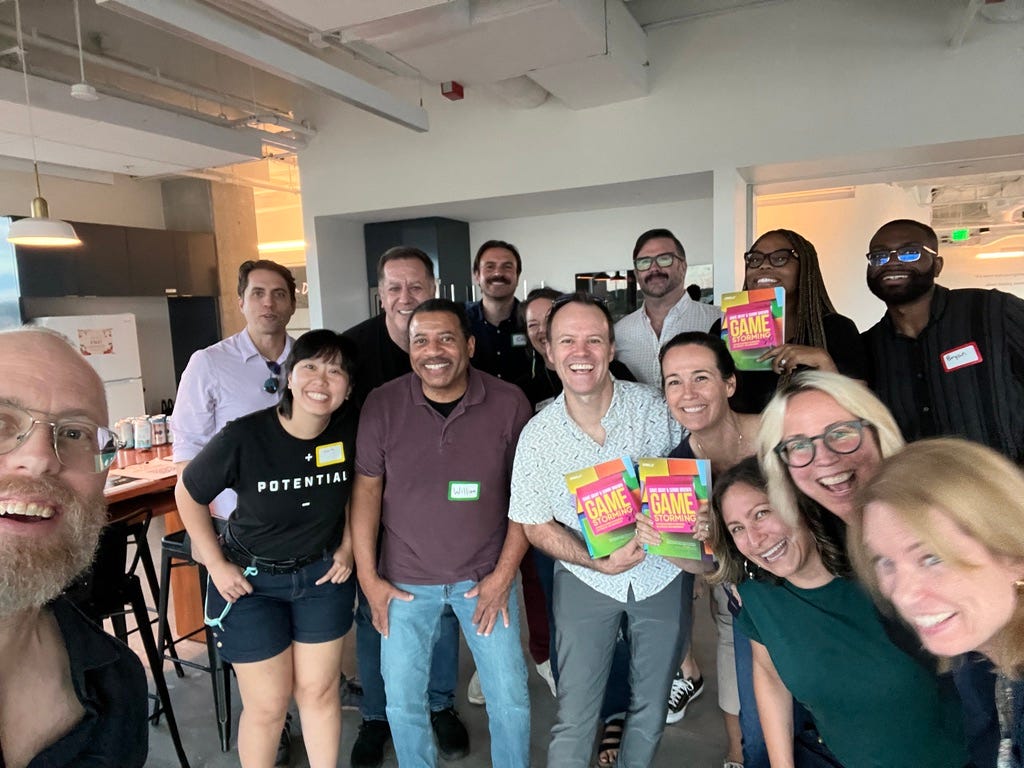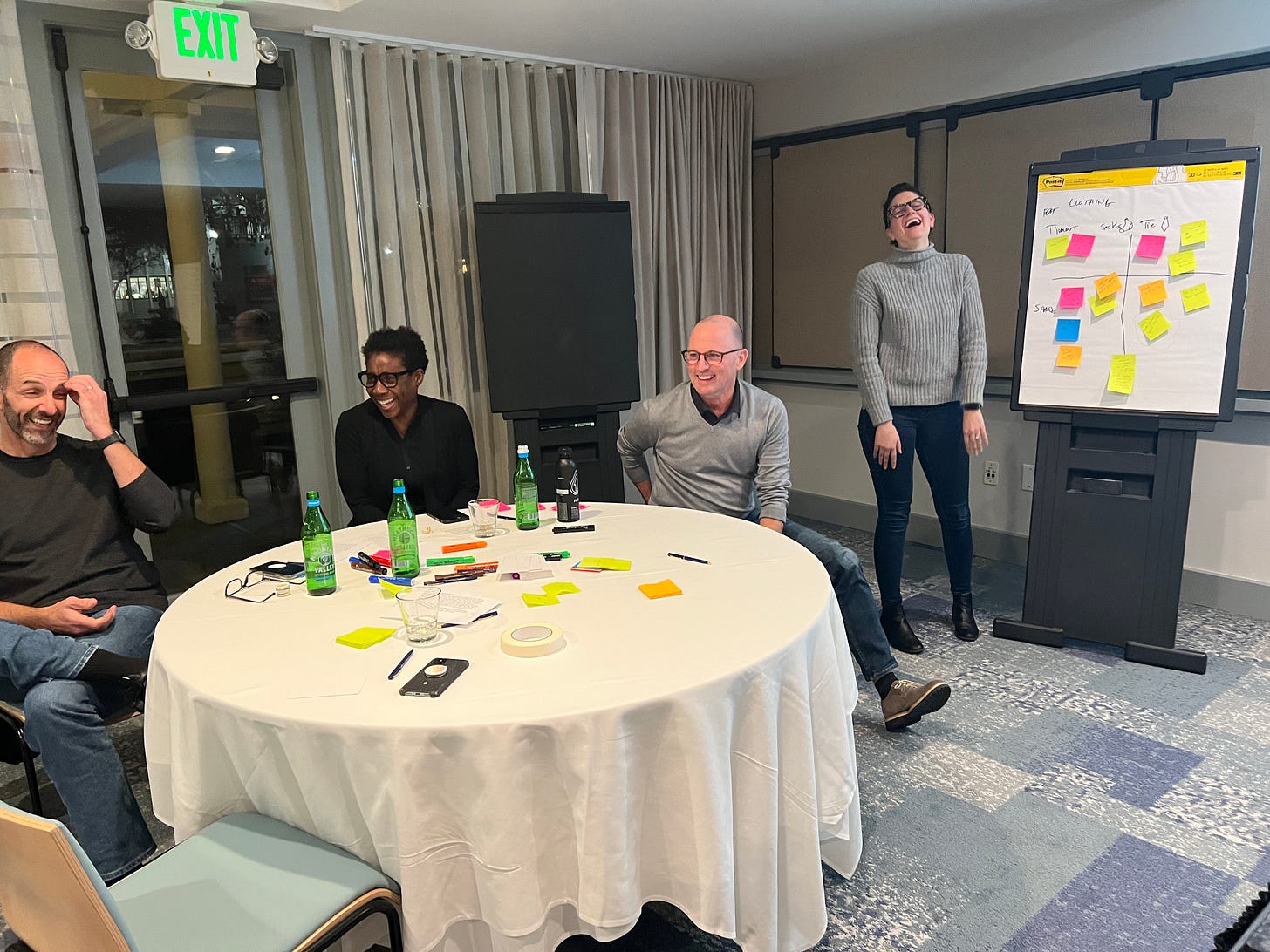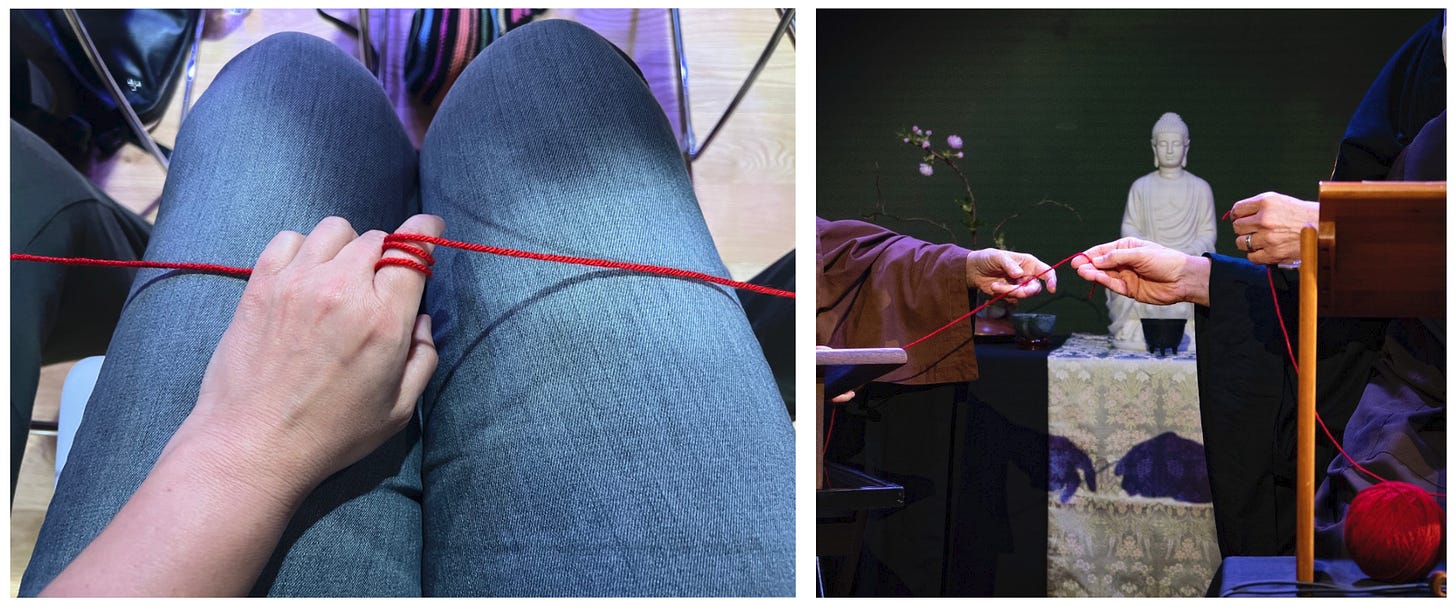find the thread
and JOIN US LIVE on November 7 - the first of a Gamestorming 2.0 Workshop Series
Austin, TX was long my home—25+ years in that formerly-weird city—so it’s not uncommon for me to return and visit the people I love. My most recent trip serendipitously coincided with a Gamestorming 2.0 book event from my friend and Voltage Control Founder, Douglas Ferguson (a.k.a. The Dug).

From observing the practitioners, I’m inspired to highlight one facet of facilitation that can sometimes fade into the background—what I call ‘finding and holding the thread.’
If you’ll forgive me a moment of Zen1 (as a student for almost 20 years, I can’t help it), I’d like to name something called the ‘Red Thread.’ A red thread used in a Zen ceremony marks the unbroken passing of insight from mind to mind, heart to heart, warm hand to warm hand. It symbolizes a living lineage and practice that flows through and connects individuals, communities, and generations.
There are parallels to the Red Thread in rich gamestorming experiences. In fact, many threads are woven in a well-facilitated group experience to keep it connective and coherent:
the sensing interviews2 we conduct beforehand help us discern the thread of the meeting purpose—one a client may be speaking to but not consciously aware of or explicitly naming—that a facilitator can pull from a tangle of thoughts
a deep-listening practice3 helps us disentangle from our own jumble of thoughts and perceptions, giving us a clean thread on what might be ideal to accomplish
game selection / curation4 helps us imagine the many possible threads, prototyping viable rivers of experience before committing to one flow
game sequencing5 builds the thread of direct experience the players will have, an experience in which the outputs of each game are well-suited inputs to the next, all of them tracking the thread of the meeting purpose
narrative framing (verbal set-up and debriefing)6 of each game reinforces the thread of purpose and guides the direct experience, keeping the stakeholders’ eyes, ears, hearts, hands, minds on the collective journey
an overarching narrative establishes the thematic thread—telling the tale, naming the why, weaving the high-level story of the gathering so it’s more memorable and meaningful for the participants
In a live session, the vast majority of the time, we want the players to be aware of these threads, understand how they came to be, feel informed and supported as they hold the threads, and stay open to moving their insights down the line. When and if the players swerve off-thread—and sometimes those moments are essential—as facilitators, we want them to be able to find it again.
Finding and holding the thread. It’s a conscientious practice that shows not only our depth as facilitators, but our respect for the time, energy, and attention of the group. Like the Red Thread, that kind of respectful attention ripples outward and continues onward. Something to consider as you practice.
Having said that, I’d like to extend a happy invitation…!
At the Center for Deep Self Design, I’m hosting a Gamestorming 2.0 Workshop Series. It will showcase diverse techniques—for our inner and outer worlds7—that augment the art, craft, and science of experiential facilitation. The kick-off workshop is called:
MIND-READING FOR FACILITATORS (& Other Humans):
Improvisation & Attunement to Read Your Group and the Room
This workshop is the first of a trilogy led by the truly one-of-a-kind Shannon Stott, Founder, Lecturer at UT Austin’s School of Design, award-winning performer, and internationally-known MVP of Improv. In this session, we’ll practice learning to read the subtle emotional and energetic cues of a group—body language, micro-expressions, tone, rhythm, shifts in breath, pacing—so that we get better at keeping the flow of ideas, information, possibilities, and connection open.

Why this matters for facilitators, and all human beings, is because when we lose track of emotional cues—or ignore and dismiss them—we run the risk of losing people. We can lose their imaginations, their creative problem-solving, their enthusiasm, buy-in, will to participate. Missing these cues not only generates misunderstandings; it keeps us from fully stepping into the moment.
This workshop is live and online Friday, November 7 from 9a - 1p U.S. Pacific Time. Four hours of content and guidance with two seasoned facilitators for $108. The button below offers more details. Come as you are.
To holding the thread and reading the room,
Sun
It may be worthwhile to note that contemporary Western Zen is rarely designated as a religion. Zen is non-theistic and works to dismantle dualistic systems of belief. Western Zen is, therefore, better described as an inner science that teaches students to become intimate with the nature of reality and the nature of the mind.
p. 89-93
p. 93-95
p. 97-104
p. 97-104
p. 105
In a recent post, I wrote about the Inner and Outer Worlds of Gamestorming. This workshop is both—participants practice observing external sensory information from other people in the room AND tuning into our own inner experience.



